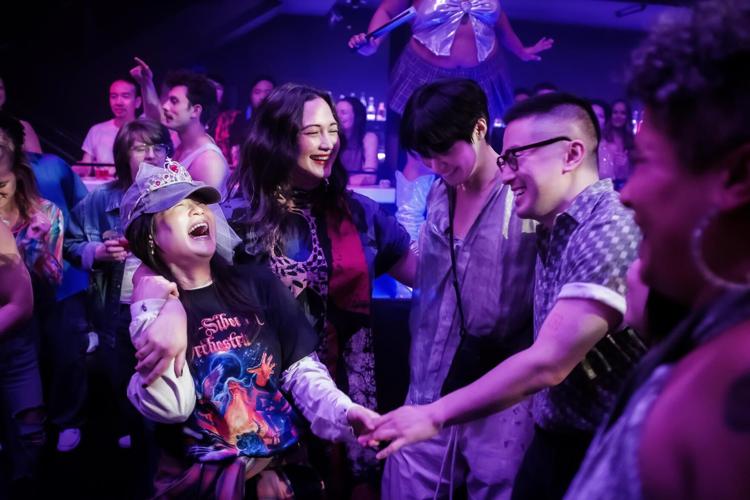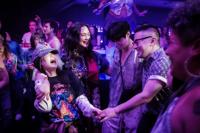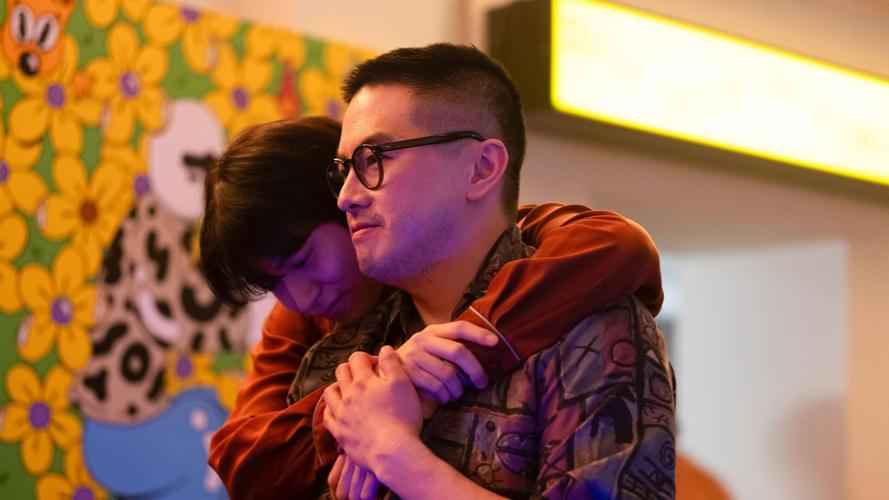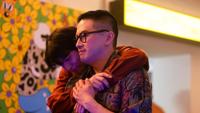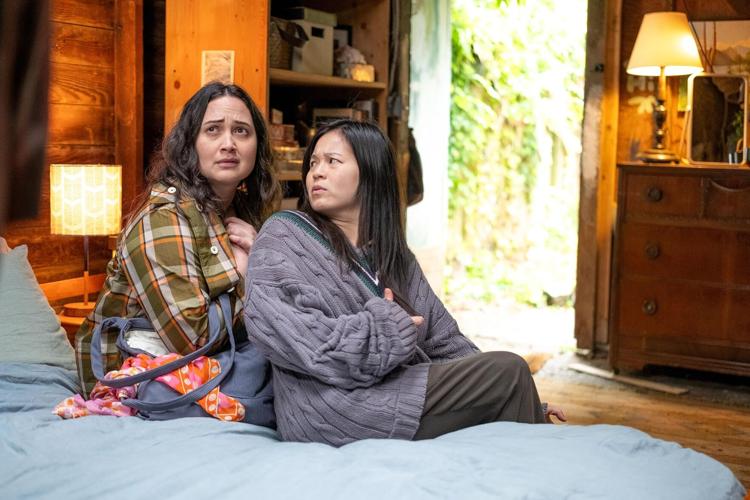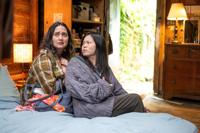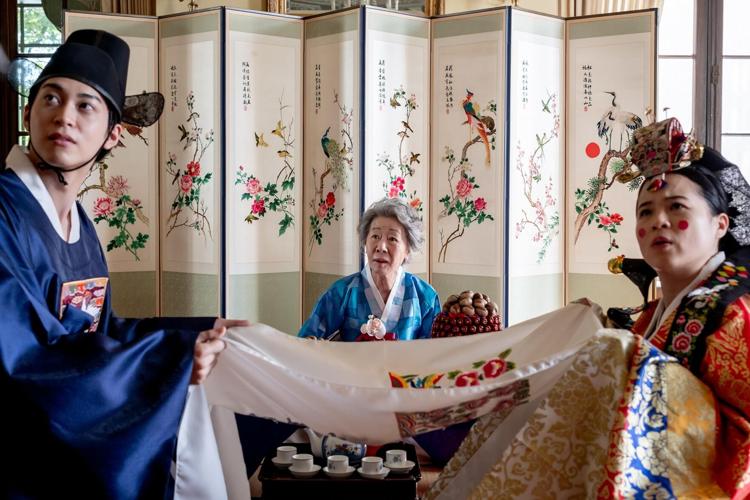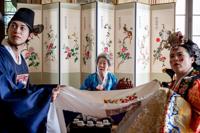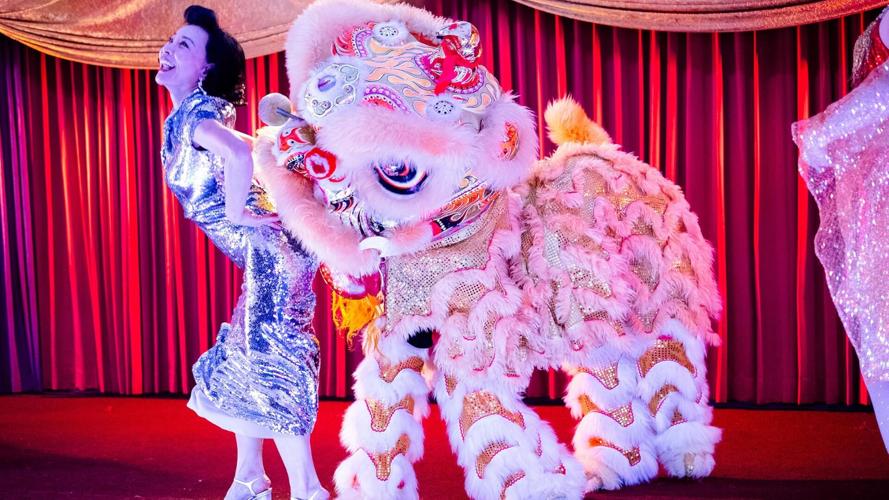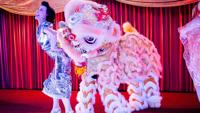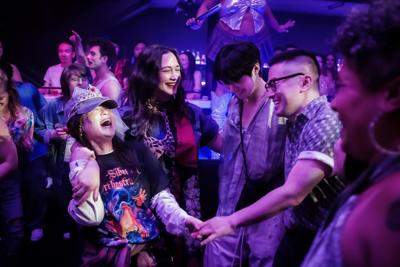Ang Lee's The Wedding Banquet (1993) was a touchstone in queer cinema. It was a critically acclaimed gay romantic comedy with an Asian leading actor and actress. Sadly, it didn't get that wide of a release. It was nominated at the 66th Academy Awards for Best Foreign-Language Film. It was set in New York City but was about a Taiwanese immigrant. When it comes to wide releases, we've gotten few romantic comedies, be it with any kind of minority in the leading role, and even fewer gay films. Jon Chu's Crazy Rich Asians (2018) presumably was going to shepherd in more rom-coms with minority leads, be they Asian or otherwise, and Ang Lee's Brokeback Mountain (2005) was supposed to shepherd more gay films, but neither quite happened. Independent films of the kind have popped up, but nothing that has gone into wide release in cinemas or theaters. Andrew Ahn is a Korean American filmmaker who directed Fire Island (2022), a gay rom-com with Asian leads that got nominated for a couple of Emmy Awards, including Outstanding Television Movie. That film featured Emmy-nominee Bowen Yang from Saturday Night Live (1975) and did end up winning a GLAAD Media Award, a Dorian Award and a Gotham Award. That film was also a remake or an adaptation of a Jane Austen novel.
If one was going to do a remake or an adaptation of Ang Lee's 1993 film, then Andrew Ahn seemed to be the perfect person to do it. It also feels like an evolution for Ahn in terms of the queer stories he's telling, particularly on a gay Asian person's perspective. Ahn's debut feature was Spa Night (2016), a film about a young Asian American discovering his sexuality. Fire Island was about an Asian American trying to date and find love. This film is about an Asian American now having to decide if he'll take the next step and get married, as well as have kids. It's as if Ahn is charting the course of a gay man's life with each subsequent film he does.

Bowen Yang (Wicked and Bros) stars as Chris, a birder or possibly an ornithologist who works as a tour guide in Seattle, Washington. He was going to a university and hoping to get a post-graduate degree but he didn't finish. He now lives in the garage or what's called the guest house of his best friend from college. Chris also lives with his boyfriend in that garage, a boyfriend with whom he's dated for five years. Chris isn't from Washington. He's originally from Kansas, a funny reveal, given that Yang was just in Wicked, a prequel to The Wizard of Oz (1939), a film that's about a girl that starts off in Kansas before being whisked away. Most of Chris' family seems to live in Kansas, except for a female cousin who also lives in Seattle but isn't struggling financially as Chris is.
Han Gi-chan (Dare to Love Me and Where Your Eyes Linger) plays Min Hyun, a Korean immigrant who is in the United States on a temporary visa. He's been in the USA for seven years and his visa is about to expire. He's in the states pursuing his love of art. In fact, he has an art show that features a lot of his pieces. He might even have his own installation. Yet, he doesn't seem to be as successful. He's Chris' aforementioned boyfriend who lives in the garage with him. They don't seem to make enough to have their own place. However, Min has access to money, a lot of it. Min is the heir to a multi-million dollar company called Hyun Enterprises that's currently being run by his grandparents. Min's parents have passed, so he stands to inherit it all. He also seemingly has access to a trust, but he doesn't use it to help him and his boyfriend have better living conditions, unless that money is what's funding his art career.

Kelly Marie Tran (Raya and the Last Dragon and Star Trek: The Last Jedi) co-stars as Angela Chen, a scientist who is currently studying worms. She could be a vermeologist, but she's friends with Chris. They met in college where they hooked up. Yet, both realized that they were gay or in Angela's case a lesbian. She's in fact best friends with Chris, which is why she's letting him stay in her garage. She refers to him as a tenant, so it's probably not totally for free. Her father isn't in the picture, but she does have a relationship with her mom. At first, when she came out to her mom, her mom didn't handle it well, which hurt Angela. However, now, Angela's mom, May, played by Joan Chen (Dìdi and Tigertail) is what's known as an ally. May Chen might in fact be a super-ally. She's supportive, but she's almost too supportive to a degree that she's ignoring the hurt she caused her daughter.
Lily Gladstone (Under the Bridge and Killers of the Flower Moon) also co-stars as Lee, the partner to Angela who may or may not identify as a lesbian. Lee might identify as nonbinary or queer. Nevertheless, Lee lives with Angela together in their house. Actually, the house belongs to Lee who could have inherited it. That's not clear. Lee could have bought the house, but we learn that Lee does work for the LGBTQ center or a similar nonprofit. Otherwise, we only see Lee gardening. Lee's main goal is that Lee wants a baby. Lee has been undergoing IVF treatments in order to be artificially inseminated. Lee has been trying to get pregnant. Unfortunately, the IVF treatments have failed now twice and they don't have the money for a third.

When Min comes up with the idea to marry Angela in order to get his green card, so that he can stay in the country, he offers to use his money from Hyun Enterprises to pay for another, if not more IVF treatments for Angela and Lee. In addition to losing his visa, Min's grandmother, Ja-Young, played by Oscar-nominee Youn Yuh-jung (Minari and Pachinko), is trying to get him to come back to Korea. Ja-Young is an elderly woman but that doesn't stop her from flying from Korea to the U.S. in order to supervise the marriage between Min and Angela. There is some question over whether or not she knows that Min is gay and that this is a sham marriage. Either way, if Min wants the money from Hyun Enterprises, they need to stage a traditional Korean ceremony to fool his grandfather and others back in Korea.
The 1993 film, which was co-written by Ang Lee, didn't have the aspect of a pregnancy and pending parenthood. That aspect is what makes this version different from Ang Lee's. Angela in particular struggles with the idea of parenthood. She still has a lot of issues in relation to her mother. She fears that she'll end up being a bad mother because in her mind, that's what her mom is. Oddly enough, the scenes between Angela and May are probably the best in the whole film. It makes you wish for more scenes between them or at least more with May with Joan Chen giving probably the best performance of everybody here. Youn Yuh-jung isn't too far behind and proves again why she was an Oscar-nominee.

Another aspect of this film that didn't or couldn't exist in the 1993 version is the idea of same-sex marriage. Same-sex marriage wasn't legal 30 years ago in the USA. Now, it is, so in some respects, this film has to grapple with that. The film tries to do so through the character of Chris. The 1993 version has the premise of a queer man having to marry a woman in order to avoid homophobia from his family. This film has a queer man having to marry a woman but for reasons that aren't really about homophobia. It's boiled down to immigration reasons. Yet, because same-sex marriage is legal now, Min could simply marry Chris and it would achieve the same goal, so this film has to come up with other reasons for Chris not to marry Min. What Ahn and co-writer James Schamus concoct works to some degree. Chris thinks that Min's family would cut him out from his inheritance, but Min has already demonstrated that he doesn't care about that, so I'm not sure that reason works, but the film also gives Chris commitment issues that sell his reluctance to marry Min a bit better.
Rated R for language and some sexual material, including nudity.
Running Time: 1 hr. and 42 mins.
In theaters.


